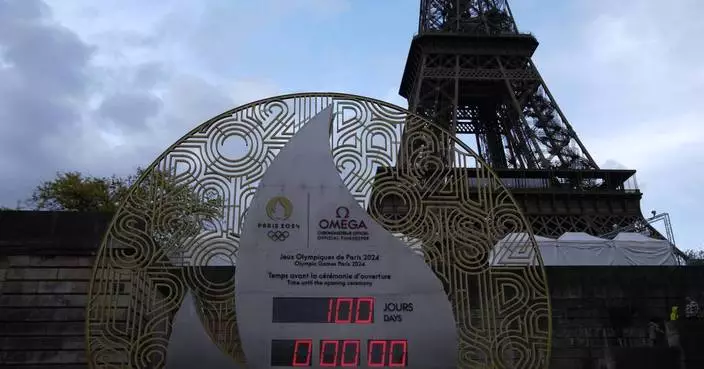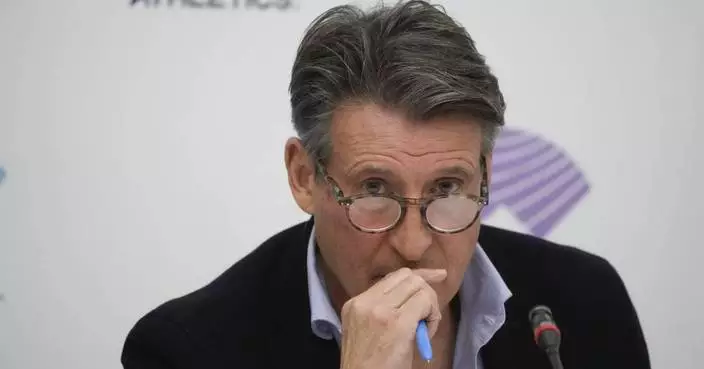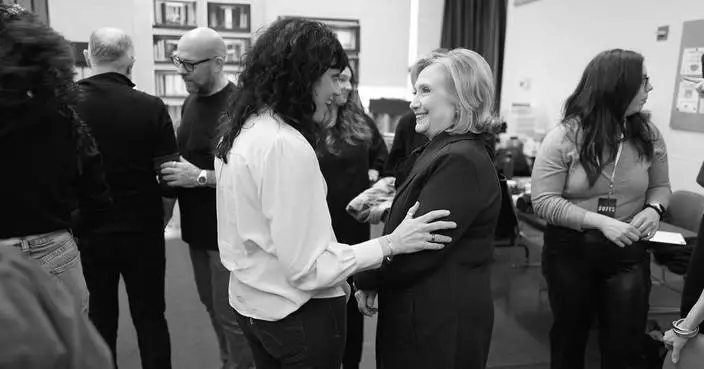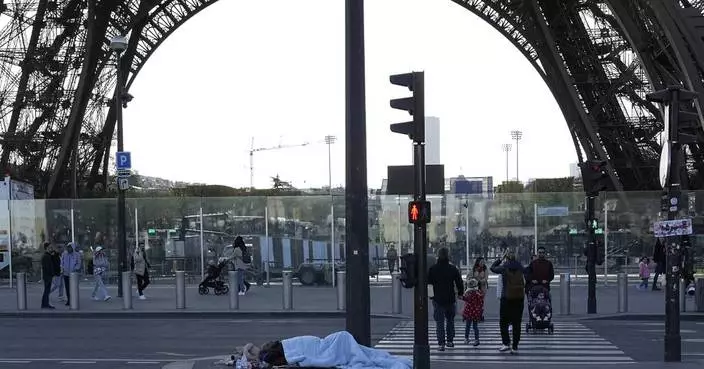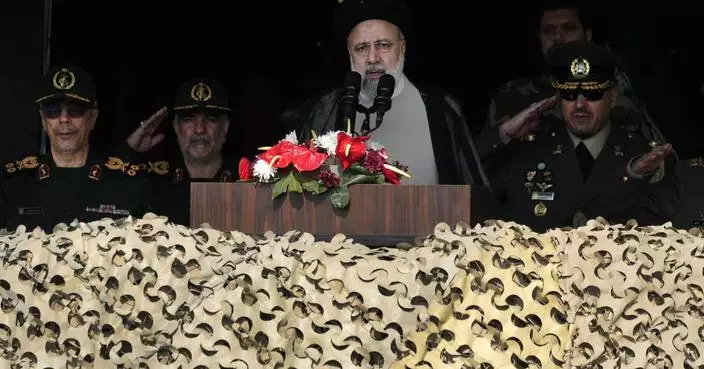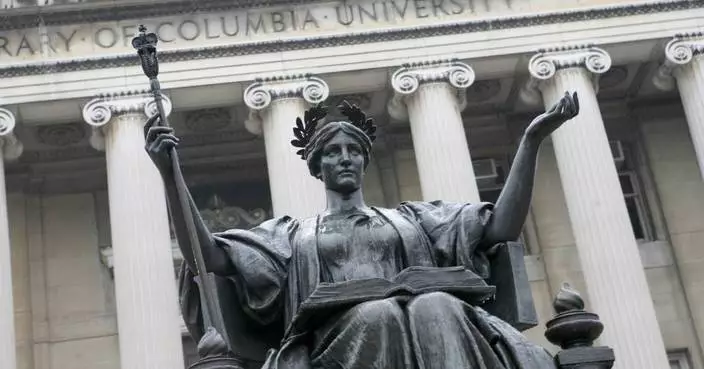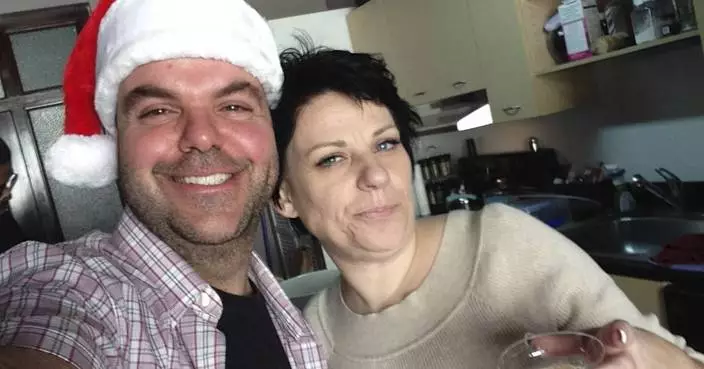Several of Russia's top medal hopes for next month's Olympics, including six-time short-track speedskating gold medalist Viktor Ahn, have been barred from the Pyeongchang Games amid the country's ongoing doping scandal.
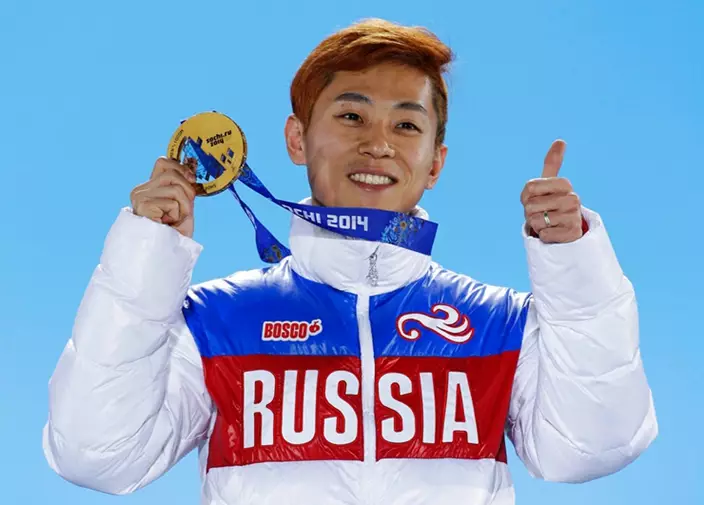
FILE - In this Feb. 15, 2014, file photo, men's 1,000-meter short track speedskating gold medalist Viktor Ahn, of Russia, gestures while holding his medal during the medals ceremony at the Winter Olympics in Sochi, Russia. The Russian Olympic Committee says Ahn, a six-time Olympic gold medalist, is among several top Russian athletes barred from the upcoming Pyeongchang Olympics amid the country’s ongoing doping scandal. (AP Photo/David J. Phillip, File)
Already depleted by doping bans and forced to compete under a neutral flag, Russia now faces an Olympics without some of its top skiers, figure skaters and sliders after they failed to pass International Olympic Committee vetting.
Five hockey players have also been barred, including former NHL players Sergei Plotnikov, Valeri Nichushkin and Anton Belov.
The exclusions stirred renewed talk of a boycott, though Sports Minister Pavel Kolobkov said Tuesday the decision to compete by athletes and officials at a meeting last month remained in force.
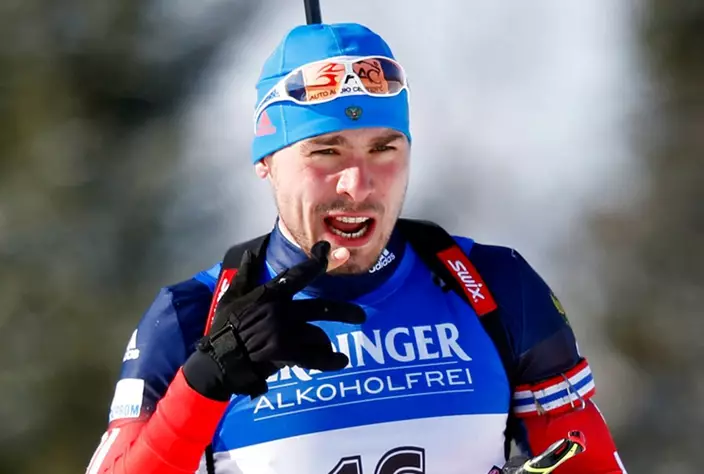
FILE - In this Thursday, Feb. 11, 2016, file photo, Anton Shipulin of Russia uncovers his trigger finger as he enters the shooting range on his way to a second place finish in the sprint competition during the World Cup Biathlon in Presque Isle, Maine. The Russian Olympic Committee says Shipulin is among several top Russian athletes barred from the upcoming Pyeongchang Olympics amid the country’s ongoing doping scandal. (AP Photo/Robert F. Bukaty, File)
The chairman of the Russian parliament's sports committee, however, told The Associated Press that the country needed to "defend out honor."
"There was an attempt to take the Russian athletes' flag, anthem, to push Russia toward a boycott ... And now this is the second attempt, tyranny, an attempt to drive a wedge between athletes who had managed to keep their good name," Mikhail Degtyarev said. "I'm not personally a supporter of a boycott. I consider it counterproductive, but we need to defend our honor."
The Russian Figure Skating Federation said the IOC was trying to provoke Russia into a boycott.
The federation said it was "deeply disappointed in this baseless IOC decision which is reminiscent of a provocation with the aim of forcing Russian athletes by any means possible to decline to participate in the games."
Besides Ahn, the Russian Olympic Committee said Tuesday that cross-country skier Sergei Ustyugov and biathlete Anton Shipulin had been left out of an IOC pool of eligible athletes. Other officials said five men's hockey players, two-time figure skating medalist Ksenia Stolbova and several other speedskaters were excluded.
As punishment for what it termed a sophisticated doping program at the 2014 Sochi Olympics, the IOC has forced all Russians competing in Pyeongchang to do so as "Olympic Athletes from Russia" under the Olympic flag, rather than as an official Russian team.
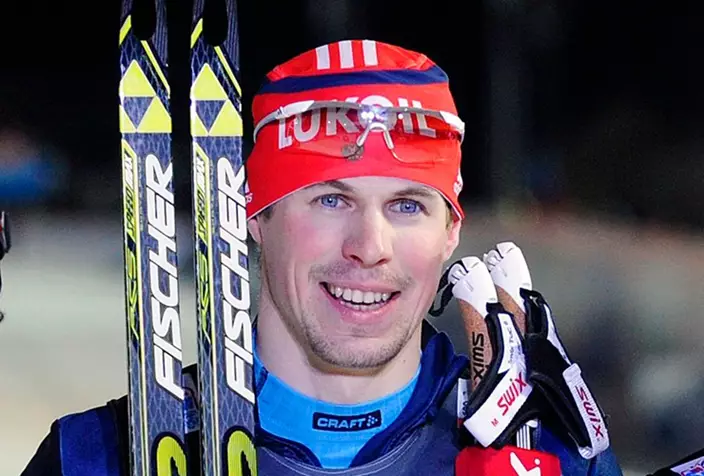
FILE - In this Saturday, Jan. 11, 2014, file photo, Sergei Ustyugov from Russia smiles after their World Cup cross-country skiing sprint in Nove Mesto na Morave, Czech Republic. The Russian Olympic Committee says Ustyugov is among several top Russian athletes barred from the upcoming Pyeongchang Olympics amid the country’s ongoing doping scandal. (AP Photo,CTK/Lubos Pavlicek, File)
Russian athletes must be vetted by an IOC commission, which will examine their history of drug testing and links to past doping, before they are invited to the games.
ROC senior vice president Stanislav Pozdnyakov said he had demanded an explanation from the IOC, adding that Ahn, Ustyugov and Shipulin "have never been involved in any doping cases and all of the many samples they have given during their careers testify that they are clean athletes. Regardless, their names are currently missing from the list of potential participants in the games."
Pozdnyakov said he hopes the IOC decisions could be overturned.
The Soviet Union boycotted the 1984 Los Angeles Olympics after the United States boycotted the Moscow Games four years earlier.
The IOC said it would not comment on individual cases, and has not spelled out why any individual athletes were refused.
"By carefully looking at all the evidence available we wanted to be absolutely certain that there was not the slightest doubt or suspicion against any of those athletes who will be invited," said Valerie Fourneyron, who chairs the IOC panel which decides which Russians can compete.
"Not being included on the invitation list does not necessarily mean that an athlete has been doped - it should not automatically cast doubt on their integrity. The IOC would like to make clear that there may still be further enquires and further anti-doping procedures coming up against a number of those athletes who have not been included on the pool of athletes considered for invitation."
Ahn won three gold medals for South Korea in short-track speedskating at the 2006 Olympics as Ahn Hyun-soo before switching allegiance to Russia in the run-up to the 2014 Sochi Olympics, where he won three more.
The Russian Figure Skating Federation said in a statement that Stolbova, who won team gold and pairs silver in 2014, was excluded, as well as ice dancer Ivan Bukin, the son of 1988 Olympic gold medalist Andrei Bukin.
The head of the Russian Skating Union, Alexei Kravtsov, told the RIA Novosti state news agency that numerous other speedskaters had been barred. They include world champions Pavel Kulizhnikov and Denis Yuskov, both of whom have previously served doping bans, as well as Ruslan Zakharov, who won an Olympic relay gold medal in short-track speedskating in Sochi in 2014.
Russian news agencies reported the IOC still considers all members of the Russian Alpine skiing, freestyle skiing and curling teams to be eligible.
On Friday, the IOC said it had cut an initial list of 500 Russian athletes down to a pool of 389, but didn't give any names. Russian officials have expressed hope they could field a team of 200 athletes. That's below the number that competed for Russia in 2014, but above its total from the 2010 Olympics in Vancouver.
Speaking to reporters on Tuesday, Kremlin spokesman Dmitry Peskov said Moscow is waiting for the IOC to clarify the situation.
"We have seen those deplorable reports in the media," Peskov said. "We deeply regret if such decisions have indeed been taken. But we hope the situation will clear up because we do have contacts with the IOC. We hope those contacts will help clarify the situation around the aforementioned prominent athletes."




